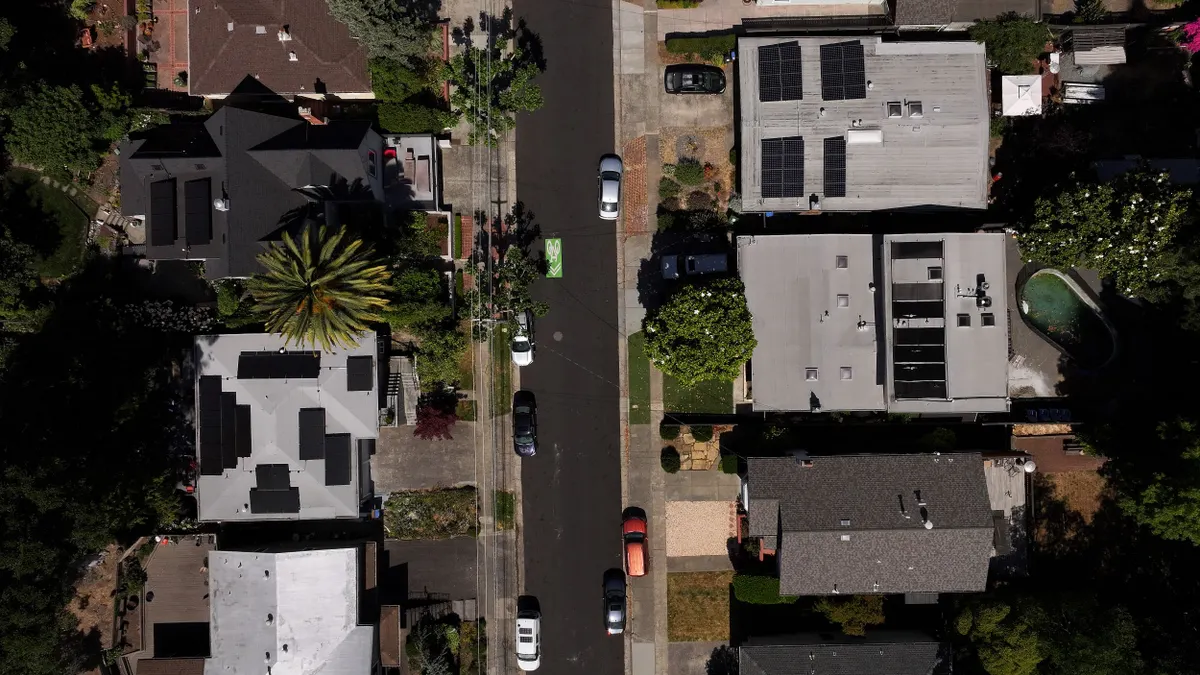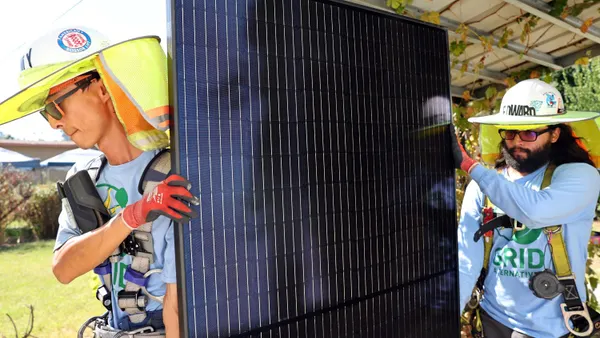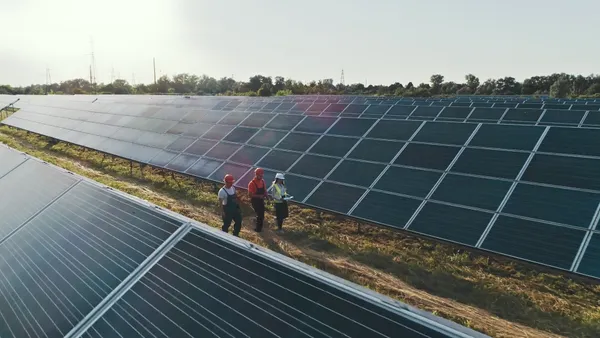Dive Brief:
- The Arizona Corporation Commission on Tuesday approved new credits and fees for distributed solar customers of Tucson Electric Power (TEP) in a 3-2 vote and for a similar proceeding of its sister-company UniSource Energy Services (UNSE) in a 4-1 vote at their monthly open meeting.
- The vote puts an end to a nearly three-year saga, over how new solar customers should be treated by the sister-utilities in a post-net metering paradigm. While current rooftop solar customers are locked in at a retail rate of $0.108/kWh for selling excess energy to the grid, new TEP customers will receive $0.0964/kWh. UNSE's customers currently receive the retail rate of $0.091/kWh and new solar customers will receive $0.115/kWh under the Commission's decision.
- The final decision wasn't immediately published, but it closely reflected the Recommended Opinion and Order issued by an administrative law judge in April.
Dive Insight:
Rooftop solar customers in many U.S. states have historically been served by retail rate net metering agreements, which direct utilities to pay customers the same rate for power sent back to the grid that customers pay to the utility.
Utilities say those agreements allow net metering users to reduce their bills too much, shifting the cost for the utility grid to the rest of the customer base. The result has been contentious policy debates, particularly in Arizona, over the correct compensation mechanism for distributed solar.
Utilities hope establishing a new rate, dubbed the Resource Comparison Proxy (RCP) export rate, will address the cost shift caused by rooftop solar owners.
Solar interests, meanwhile, criticized the new, lower rates, but praised regulators for rejecting the company's approach to calculating the cost to serve solar customers. After years of debate, the new rates could provide the industry with a workable model for residential solar in the state.
"The commission has put out, I think, a pretty forward-looking decision on the methodology for how this should be decided going forward," Briana Kobor, the regulatory director at Vote Solar, told Utility Dive.
The approved rate for new customers will pay new rooftop solar owners too little and charge them too much in monthly meter fees, reducing the economic incentive to install a solar system, according to advocates for rooftop solar installations.
"This is a significant change for retail rate net metering and we expect that to be detrimental to adoption," Kobor said.
TEP officials, however, said the new rates show "assertions about the imminent demise of the solar industry were exaggerated."
"We're very pleased to have a decision that preserves generous bill savings for customers who want to go solar while reducing cost burdens placed on other customers," TEP spokesperson Joseph Barrios said in an email. "New residential solar customers with typical usage will still find plenty of incentive to go solar with average monthly bills that are more than $100 below customers without rooftop solar, and payback periods of less than 10 years."
Besides establishing a post-net metering rate for solar installations, the order includes a special rate for new solar customers with home storage systems. Residential storage is fairly new to TEP and UNSE customers, Barrios told Utility Dive last month.
"We're also excited to have approval to offer customers new choices for powering their homes and businesses with clean, cost-effective solar energy," Barrios wrote. "We'll have more information about those community solar options in the coming months."
Kobor expects a similar methodology to be used in the rate cases that will follow, including for Arizona Public Service (APS), which had previously reached a settlement with distributed solar advocates about the future of net metering for new solar owners in their service region.
The APS proposal would lower solar credits less than the approved TEP plan, but TEP President and CEO David Hutchens wrote commissioners on Monday to reiterate that his utilities are different from APS and their net metering replacements could not be directly compared.
"Our customers are more affected by the DG [distributed generation] cost shift than APS customers," Hutchens wrote.
CORRECTION: This story has updated Vote Solar's perspective on the ruling. A previous version also misstated the change in export rates for new solar customers: new TEP customers will receive $0.0964/kWh as opposed to $0.108/kWh and new UNSE customers will receive $0.115/kWh as opposed to $0.091/kWh.












